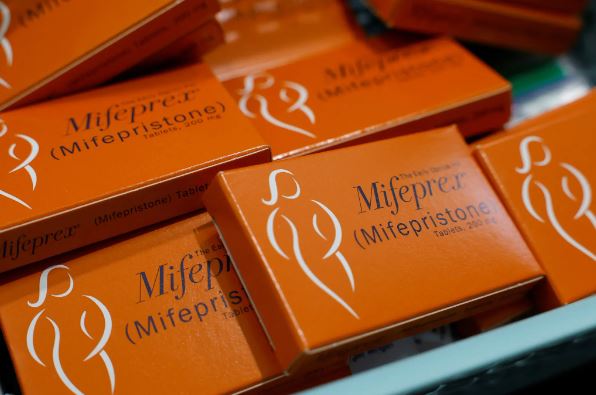A surge in demand for abortion pills by tens of thousands of non-pregnant women is evident in a study published on Tuesday. This practice, known as advance provision, has gained popularity since the Supreme Court’s decision in 2022 to overturn the national right to abortion. The study, published in JAMA Internal Medicine, analyzed data from Aid Access, a telehealth organization that has been providing abortion pills to women in the first 13 weeks of pregnancy and expanded its services to include women not currently pregnant in September 2021.
Before the leaked draft of the Supreme Court decision in May 2022, Aid Access received approximately 6,000 advance provision requests, averaging 25 per day. However, since then, there has been a significant increase, with over 42,000 requests received, averaging 118 per day. The study found that the highest spikes in demand occurred following events that raised concerns about the future availability of abortion, such as the leak and the subsequent Supreme Court decision in June 2022. Another surge happened in April 2023 after a series of court rulings in a lawsuit by abortion opponents seeking to restrict mifepristone, a key abortion pill, a case that is currently before the Supreme Court.
The rates of requests were highest in states where abortion bans were anticipated, even surpassing the rates in states that already had bans in place. Most women who requested the pills cited reasons such as “ensuring personal health and choice” and “preparing for possible abortion restrictions.” Dr. Abigail Aiken, a co-author of the study and an associate professor at the University of Texas at Austin, noted that people were actively paying attention to the threat of reduced abortion access and were proactively seeking ways to prepare.
The study, covering data from September 2021 through April 2023, revealed a total of 48,404 advance provision requests and 147,112 requests from women seeking to terminate existing pregnancies. Advance provision requesters were more likely to be 30 or older, white, childless, and residents of urban areas with lower poverty rates compared to those already pregnant. This could be attributed to Aid Access offering free or reduced-price services to pregnant patients in need of financial assistance, while advance provision requesters were expected to pay the full $110 cost.
The study also showed that a subset of advance provision requesters, including 937 women, answered follow-up questions, with most of them still having the pills. However, 58 had taken the pills, and 55 had given them to someone else. Around 60% took the pills before seven weeks of pregnancy, and all 58 reported that the pills were effective, with no serious complications reported.
Legal scholars suggest that advance provision may be legal in some states with abortion bans. However, abortion opponents object to this practice, claiming that abortion medication is dangerous. On the other hand, abortion rights supporters argue that advance provision increases access to safe abortion and emphasizes the safety of the pills.
The study highlights a growing trend of women seeking advance provision of abortion pills, driven by concerns about potential restrictions on abortion access. This practice has become more prominent since the Supreme Court’s decision to overturn the national right to abortion in 2022. The study underscores the importance of understanding evolving patterns in reproductive health decisions and the impact of legal developments on women’s choices.

